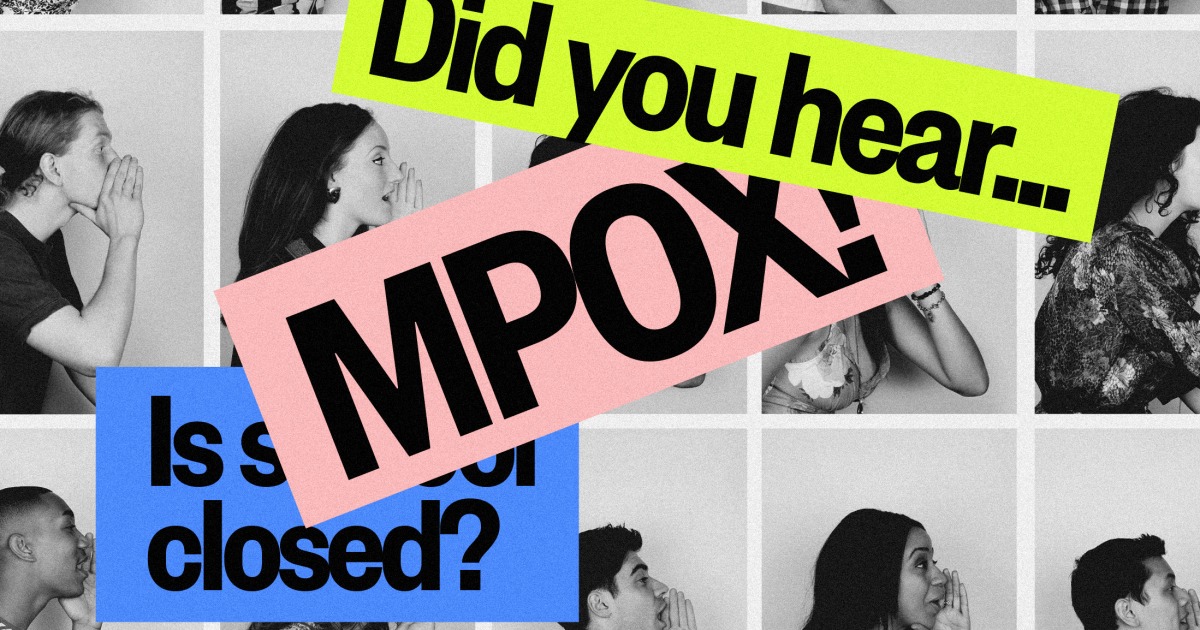
Since the World Health Organization declared mpox a global health emergency last week, familiar fears of school shutdowns have ricocheted across social media, striking a nerve with many U.S. students who remember all too well the 2020 Covid lockdowns.
“I’M NOT MISSING SENIOR YEAR BC OF MONKEYPOX,” one person wrote in the caption of a TikTok video with nearly 1 million views.
In another, a remix of “Forever Young” plays as the text “2024: ‘did you see they shut down some schools,’” appears on the screen. The video has more than 8 million views. “I swear if it’s another lockdown I’ll cry,” someone replied in the comments.
Kids “have been through this before,” said Dr. Michelle Taylor, director and health officer of the Shelby County Health Department in Memphis, Tennessee. “They don’t want to go through it again.”
While the mpox outbreak in Africa is worrisome, federal health officials insist that this virus is dramatically different than Covid, and is highly unlikely to lead to school closures.
“This is not like Covid, where there’s nothing visible on somebody,” said Christina Hutson, head of the poxvirus and rabies branch at the Centers for Disease Control and Prevention. With mpox, she said, “you actually can see the lesions on somebody. Unless you’re directly touching them, you’re not going to get infected.”
How does mpox spread?
Mpox, previously called monkeypox, is a virus that causes fevers, headaches, muscle aches and painful, open wounds on the skin.
While Covid is a respiratory virus that spreads through the air, mpox is spread from person to person through close, skin-to-skin contact with those lesions. Sometimes, people can also become sick after touching contaminated items, such as clothing or bedding.
“What was scary about Covid was that it can spread asymptomatically,” said Dr. Paul Offit, a pediatricianand infectious disease expert at the Children’s Hospital of Philadelphia. “That’s not true of mpox.”
There are several versions of mpox, called clades. In 2022, clade II spread globally, mainly among men who have sex with men. While those cases are still circulating at low levels in the United States, they’ve decreased significantly.
Clade I accounts for the latest mpox strain that’s driving the outbreak in parts of Africa. It’s alarmed health officials because it’s a more severe and deadlier form of the virus.
Where is mpox spreading?
Nearly all clade I cases so far have been limited to African countries, particularly the Democratic Republic of Congo, or the DRC.
Only one country outside of Africa, Sweden, has confirmed a case of clade I mpox. No cases of clade I mpox have been detected in the U.S.
CDC modeling studies on clade I mpox have suggested that the potential for spread even within households is unlikely in the U.S.
“The living situation in the DRC for most of the country is quite different than the U.S.,” Hutson said. “These are really small house sizes with many different occupants, so it’s really hard to isolate from somebody infected.”
Will schools shut down if clade I mpox spreads in the U.S.?
The answer at this point is “absolutely not,” said Dr. Carlos del Rio, a professor of medicine and expert in infectious disease at Emory University in Atlanta. Del Rio was one of the first to advocate for drastic measures in schools, including shutdowns, in 2020 as the coronavirus spread.
“The approach to this virus,” he said of mpox, “is very different.”
That’s because experts know a lot more about mpox than they did about Covid in early 2020, when the coronavirus was new to science. Mpox, on the other hand, has been studied for decades.
“It’s not airborne,” Taylor said, adding that there is no evidence that the mpox virus is mutating or spreading in a way that would prompt school closures. “Based on the science, I just don’t believe that’s going to happen.”






